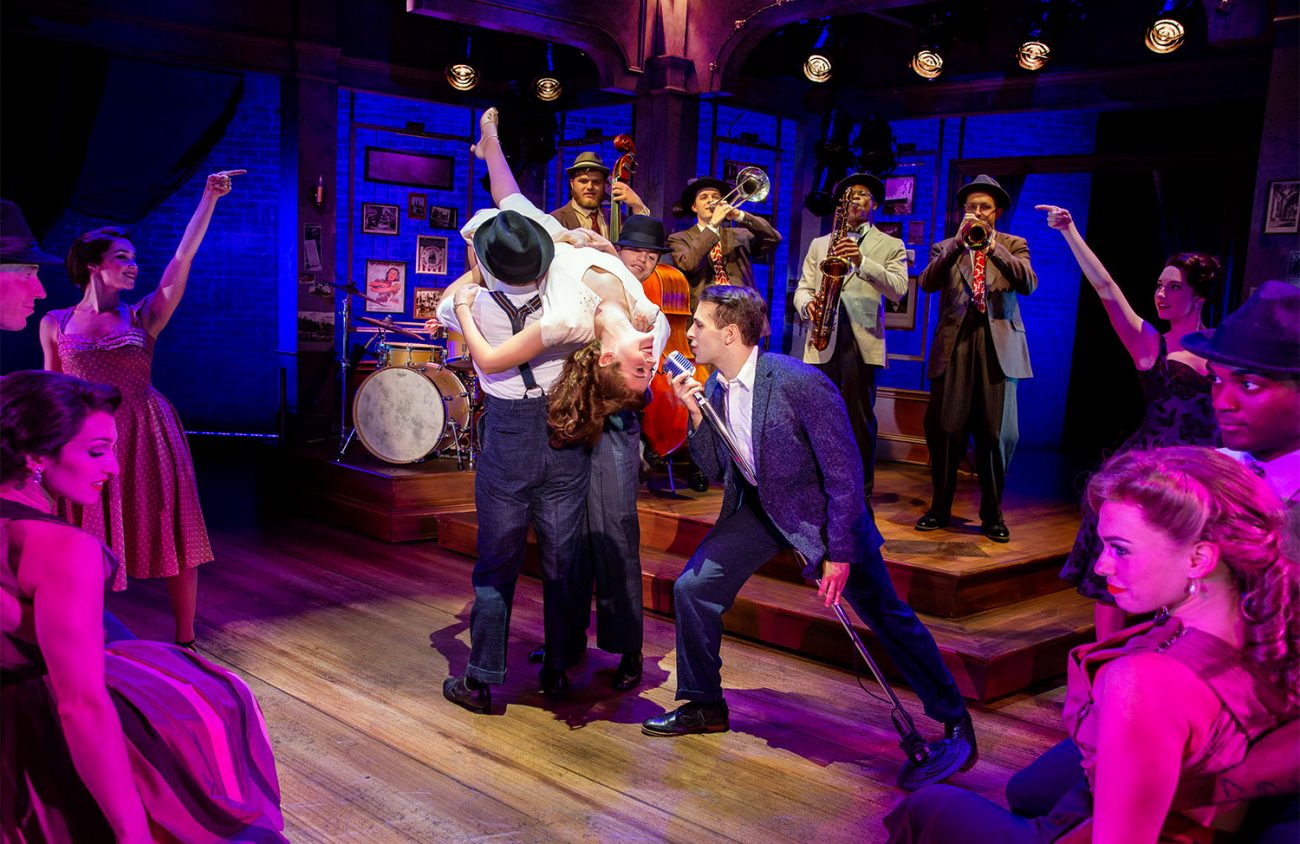Truth be told, I half expected to see a small gathering of MAGA hats in the Hult Center for Bandstand, Broadway’s Tony award-winning musical that ran Nov. 16-17. What can I say? Romanticized callbacks to 1940s America bring up certain images these days, and not all of them include bumper bangs.
With book, music and lyrics by Richard Oberacker and Robert Taylor, Bandstand, in this traveling production by Theater League, is an astounding, albeit uneasy, cry for America’s veterans, and not what you might expect in an era where “for the troops” is often politicized.
The story centers on Donny Novitski (Zack Zaromatidis), a World War II veteran and musician struggling to make a living in postwar Cleveland. He recruits a band of veterans to perform in the Tribute to the Troops competition, an old-timey radio version of America’s Got Talent fraught with product placement and an obvious romance with war widow Julia Trojan (Jennifer Elizabeth Smith).
For better or worse, there’s a dissonance in Bandstand. The opening number, “Just Like It Was Before,” begins in the trenches of war, teasing “Taps” over an upbeat melody. The weight of the battlefield doesn’t quite match the hopeful tone, yet it’s hard not to be utterly entranced by the smoke and mirrors, which in this case is smoke and swing dancers.
Originally directed and choreographed by Andy Blankenbuehler, Bandstand moves quickly and with military precision. Dreamlike sequences fill the gaps in between scene changes while huge instruments on wheels rotate on and off the stage — piano, bass, drums, horns all swirling into and out of swanky bars with high-flying dancers.
Miles Plant leads the musical direction for the incredible musicians on stage, many of whom haven’t acted professionally before Bandstand. Zaromatidis’ voice is brilliant, strong and especially visceral in the sobering “Right This Way,” a middle finger to the disgraceful lack of compensation for veterans.
Similarly, Smith leads the band in the dark finale “Welcome Home,” an ironic, semi-comprehensive picture of postwar America.
Musical prowess aside, Bandstand is most powerful in its heavy-hitting moments: a soldier putting together, then taking apart, a glinting silver gun; the not-so-subtle metaphor of a rigged competition; the ghosts of fallen brothers pushing an upright piano across the stage; alcoholism, trauma and anxiety.
Roxy York, who plays Julia’s overbearing and jovial mother, sings a plaintive ballad in “Everything Happens,” a reminder that not everything needs an explanation, even though Bandstand seems to like neat little bows.
Thematically, Bandstand teases the road less traveled, but because no one really likes to be beaten over the head with the atrocities of war, we’re still served apple pie.
